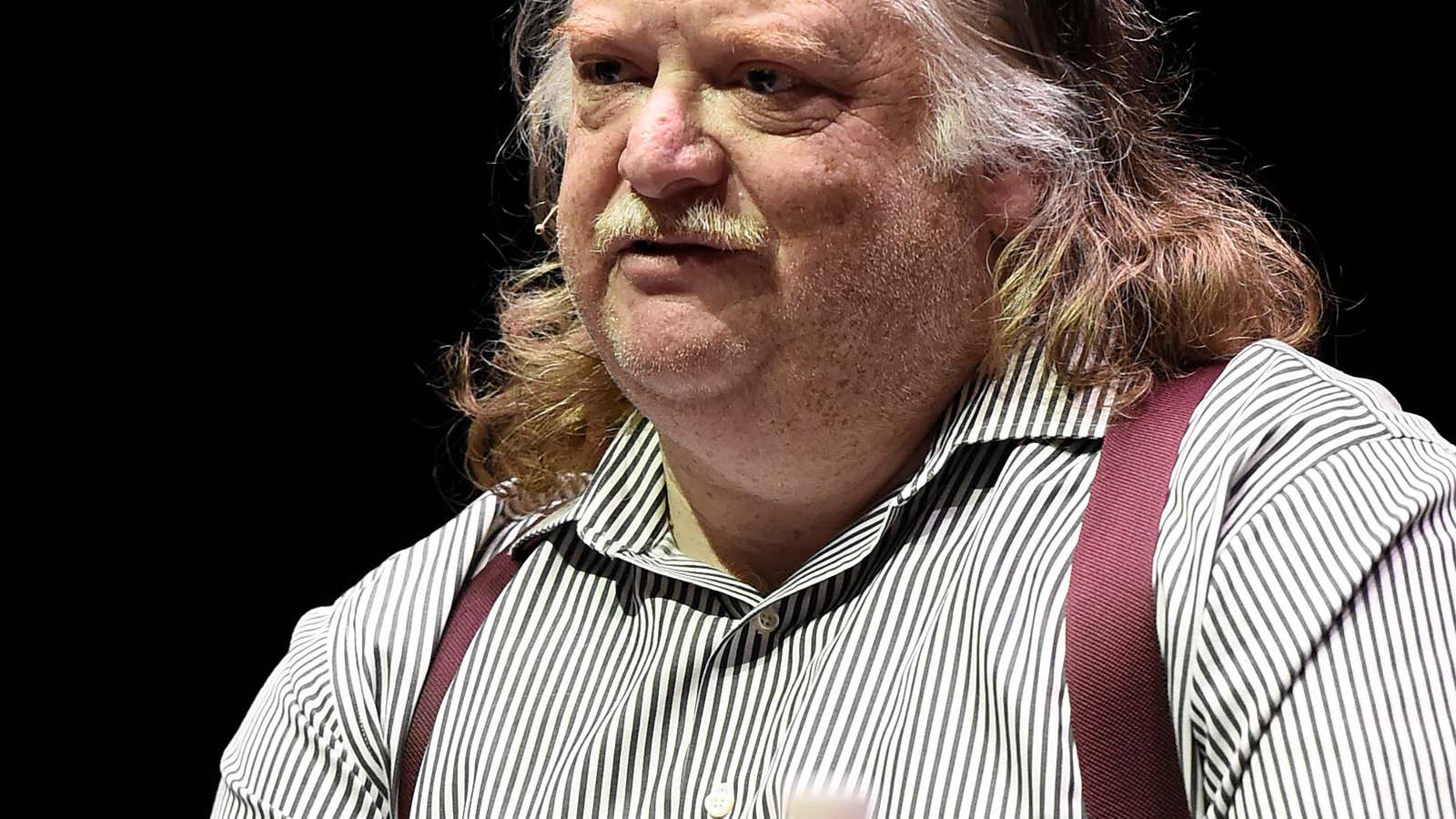“In this completely ordinary place, there happens to be extraordinary food,” says Jonathan Gold in a scene from City of Gold, the 2015 documentary of which he is the subject. “It’s the miracle of entry-level capitalism, I think.”
Gold, who died on Sunday at the age of 57, was famous not just for the way he wrote about food, but also for the food he chose to write about. Sure he covered white tablecloth restaurants and farm-to-table affairs in his reviews for LA Weekly and the LA Times. But what set him apart as an eater and critic, was his love of getting into his forest green pick-up truck and driving around the LA metro area, in search of an undiscovered pupusa, a superlative pho, a fiery dish from the south of Thailand, or a cluster of restaurants signaling a new wave of immigrants from a different part of China, Mexico, Africa or the Middle East.
For Gold, all food comes from somewhere and tracing the history of a dish—and the path it took to arrive in Southern California— was as much his task as detailing the ingredients and method of preparation. That is to say, that he wasn’t simply interested in the food, his real mission was to understand the people making and eating it.
In the exceptional City of Gold– which if you’re curious at all about Gold, his work, and what LA looks like through a professional eater’s eyes—the camera follows him around the city as he ducks into mini-mall after mini-mall, pointing out the city’s best dim sum of the moment, a place famous for adding boiled ox penis to pho, or a Chinese-Islamic restaurant. Los Angeles, he explains from the driver’s seat of his truck, is so spread out that enclaves of immigrants make food not to match local tastes, but for other immigrants from the same place. The city’s geography and layout has created perfect conditions for a sort of culinary preservation, as potent and thrilling as pickle brine.
In the documentary, Gold points out a restaurant serving American-style Chinese food prepared for Chinese eaters as an exotic treat with a sly smile, and the same sense of fascination he displays tracing the overlapping waves of Chinese cuisine in the San Gabriel Valley, east of Downtown LA; or teasing out the California, Sinaloa, and cooking school influences at work in a family-run cevicheria.
In a 2012 review of Shanghai No. 1 Seafood for LA Weekly, Gold wrote, “its cooking is not altered to suit the Western palate, and many of its most stunning effects may whiz straight over the heads of diners not actually raised in eastern China.” Gold not only reveled in the experience of eating, he thrilled to the notion that he could be of help to his readers—to make sure we didn’t miss those stunning effects, and wouldn’t remain clueless about the waves of influence and migration that brought them to his doorstep.
